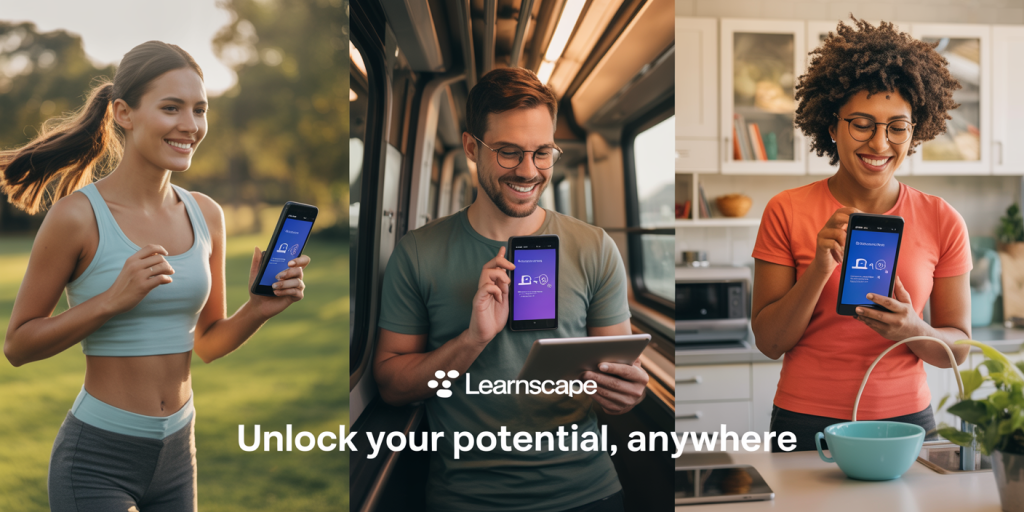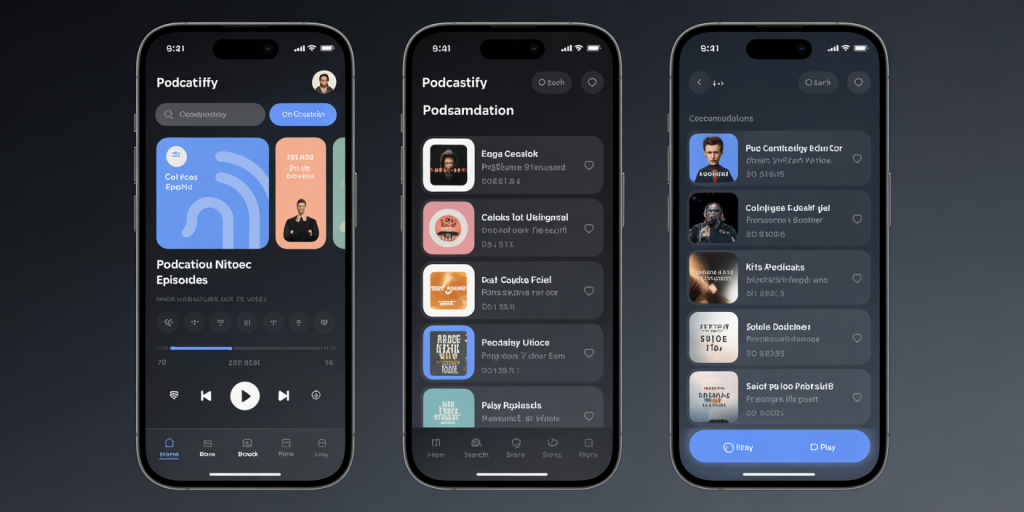The Best Podcast Apps for Learning on the Go
In today’s fast-paced world, learning no longer requires a dedicated desk or a quiet classroom. Mobile technology has revolutionized education, turning commutes, workouts, and even household chores into valuable learning opportunities. Podcasts, in particular, have emerged as a powerful tool for acquiring knowledge anytime and anywhere. With thousands of educational podcasts available on topics ranging from language acquisition to science and entrepreneurship, the key lies in choosing the right podcast app to enhance your learning experience.

Selecting an app that suits your learning style, offers useful features, and seamlessly integrates with your daily routine can dramatically improve your engagement and retention. This article explores the best podcast apps available for learners on the go, supported by data from user reviews, industry analysis, and real-world applications.
Why Podcasts Are Ideal for On-the-Go Learning
Podcasts provide a unique blend of flexibility and diversity, making learning accessible to virtually any schedule or preference. Unlike traditional learning methods, podcasts require minimal setup—just press play. This convenience empowers multitasking, whether commuting to work, exercising, or cooking dinner. According to Edison Research, 62% of Americans aged 12 and above have listened to a podcast, with an average listener consuming seven episodes weekly. The growing popularity underscores podcasts’ potential as an educational medium.
Moreover, podcasts cover an extensive range of fields that cater to niche interests and broad disciplines. From academic lectures to motivational talks and industry-specific news, the variety enables continuous knowledge acquisition tailored to individual goals. Practical examples abound in workplaces; for instance, sales teams might regularly tune into industry trend podcasts during their gym time, while students immerse in foreign language podcasts during daily commutes.
However, the effectiveness of podcasts depends largely on the app used. Factors such as sound quality, content discovery tools, playback features, and integration capabilities can either bolster or hinder the learning process.
Key Features to Look for in Educational Podcast Apps
When seeking a podcast app for educational purposes, several features stand out as essential. First, content discovery and curation tools are vital to support users in finding relevant and high-quality podcasts. Advanced algorithms or manual curated lists help learners avoid content overload and focus on trusted sources. For example, apps offering keyword search by topic, curated educational playlists, or expert recommendations improve the efficiency of finding material.
Second, playback customization significantly influences learning retention. Speed adjustment, bookmarking, and chapter navigation allow listeners to tailor the experience to their attention span and note-taking habits. Language learners, for instance, benefit from slow playback and easy rewind functions for difficult phrases, while professionals might speed up content to digest more in limited time.
Another critical factor is compatibility and synchronization across devices. Seamless syncing between smartphones, tablets, and desktop ensures users can pick up where they left off, facilitating continuous and flexible learning. Integration with note-taking apps and sharing options further supports active learning and discussion in educational groups or classes.
Top Podcast Apps for Learning: Detailed Analysis
1. Spotify
Spotify is a giant in the audio streaming world, and its podcast section has expanded rapidly, making it a powerhouse for learners. With over 4 million podcasts across genres, its vast library includes numerous educational series on science, history, technology, and business.
One standout feature is Spotify’s personalized recommendation engine, which uses user listening history to suggest relevant educational podcasts. Additionally, users appreciate the ability to download episodes for offline listening, which is crucial for learners with limited connectivity. Real-world feedback from language learners highlights Spotify’s ease in grouping language podcasts into playlists, streamlining repetitive listening for language acquisition.
However, Spotify’s podcast player tools are somewhat basic compared to dedicated podcast apps—speed control exists but lacks the precision some learners desire. There’s also a lack of advanced note-taking or bookmarking features, which could affect users focused on deep study.
2. Apple Podcasts
Apple Podcasts has long been a staple for iOS users, renowned for its clean interface and extensive catalog. With its integration into Apple’s ecosystem, learners benefit from effortless synchronization across devices, such as iPhones, iPads, and MacBooks.
The platform offers curated educational collections and categories that help users explore topics such as psychology, finance, or literature in an organized manner. Because Apple Podcasts supports chapter markers, learners can jump between different sections of an episode—especially helpful for longer, detailed lectures.
In terms of downsides, Apple Podcasts is limited to Apple devices, which excludes learners on Android. Additionally, its discovery algorithm is less refined compared to Spotify, sometimes making it harder to find hidden gems outside the top charts.
3. Pocket Casts
Pocket Casts is widely praised for its rich feature set tailored to podcast enthusiasts and learners alike. The app supports automatic episode downloads, variable playback speeds ranging from 0.5x to 3x, trimmed silences to optimize listening time, and extensive filtering options.
A unique advantage is its intelligent playlists, which allow users to organize learning material by priority or topic. For example, a user studying entrepreneurship can create a custom playlist combining podcasts about startups, marketing, and leadership, ensuring a cohesive learning path without random episode interruptions.
The app also excels in cross-platform syncing, working seamlessly on Android, iOS, and desktop. Its usage is backed by significant positive reviews; a 2023 survey by Podcast Insights ranked Pocket Casts among the top three podcast apps preferred by power users focused on educational content.
However, Pocket Casts is a paid app, which may deter casual learners, although the one-time cost grants lifetime benefits with consistent updates.
4. Google Podcasts
Google Podcasts appeals to Android users as a free and straightforward podcast app with good integration into the Google ecosystem. It supports automatic episode downloads and syncs progress across devices logged into the same Google account.
From a learning perspective, Google Podcasts’ search and discovery functions are powered by Google’s robust AI, making topic-based searches particularly effective. For example, searching “renewable energy” yields a wide range of relevant podcasts, filtered by popularity and recency.
On the flip side, Google Podcasts lacks advanced playback controls such as customizable speed increments and detailed bookmarking. Its lack of support for chapter markers also limits navigation efficiency for longer educational content.

Comparative Table of Podcast Apps for Learning
| Feature | Spotify | Apple Podcasts | Pocket Casts | Google Podcasts |
|---|---|---|---|---|
| Device Compatibility | iOS, Android, Desktop | Apple devices only | iOS, Android, Desktop | Android, iOS, Web |
| Content Library Size | 4M+ podcasts | Extensive | Extensive | Extensive |
| Playback Speed Control | Basic (0.5x to 2x) | Basic | Advanced (0.5x to 3x) | Basic |
| Offline Listening | Yes | Yes | Yes | Yes |
| Bookmarking/Notes | No | Yes (limited) | Yes | No |
| Chapter Support | Limited | Yes | Yes | No |
| Playlist Creation | Yes | Limited | Advanced | No |
| Price | Free/Premium | Free | Paid ($3.99) | Free |
Real-World Use Cases: How Learners Benefit from Podcast Apps
Consider Jane, a university student majoring in environmental science who uses Pocket Casts to follow a mix of academic lecture podcasts and industry interviews. She appreciates how the app’s playlist feature organizes content from various sources into a streamlined study routine, coupled with speed adjustments to fit her time constraints.
On the other hand, Mark, a busy sales manager, employs Spotify during his daily runs to learn about market trends and negotiation tactics. He values Spotify’s discovery engine but sometimes finds the lack of advanced playback features a drawback when trying to review complex explanations.
Meanwhile, Priya, an iPhone user learning French, relies heavily on Apple Podcasts for episode chapter markers, which allow her to focus on pronunciation and grammar segments. She syncs episodes across her iPhone and MacBook, ensuring uninterrupted study sessions.
These examples illustrate how different apps cater to distinct learning objectives and lifestyles, emphasizing the importance of choosing an app aligned with personal preferences.
Future Trends in Educational Podcast Apps
The future of podcast apps for learning looks promising, driven by advancements in artificial intelligence, interactivity, and integration with other digital learning tools. AI-powered recommendations are expected to become even more personalized, analyzing not just listening habits but learning outcomes—suggesting podcasts that enhance weak subject areas based on listener feedback and quizzes.
Additionally, podcast apps may evolve to include interactive transcripts, real-time quizzes, and integration with augmented reality (AR) and virtual reality (VR) platforms, creating immersive learning environments. Imagine listening to a biology podcast that synchronizes with a 3D AR model of cell processes visible on your device for a comprehensive understanding.

Community features are also poised to grow, fostering collaboration through discussion forums, shared notes, and group learning playlists. This social element can drive engagement and accountability, emulating classroom dynamics in a mobile format.
Moreover, cross-platform compatibility and accessibility will remain critical. Developers are likely to enhance features aimed at inclusivity, such as better support for the hearing impaired and multilingual content, expanding the global reach of educational podcasts.
In conclusion, podcast apps have firmly established themselves as indispensable tools for learning on the go. Selecting the right app tailored to individual needs enhances not only convenience but also the effectiveness of the educational experience. As technology advances, these apps will increasingly blend entertainment with education, making lifelong learning an effortless and enjoyable habit.
